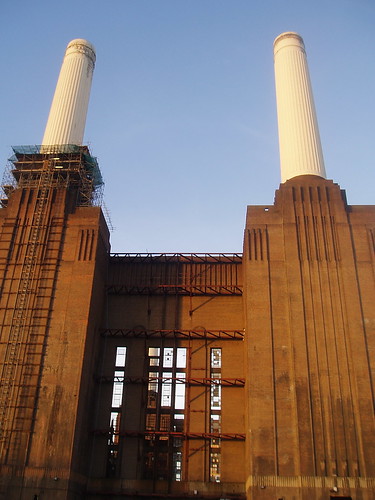
You couldn’t make it up.
Former Wings frontman Paul McCartney is holding a bring-me-back-my-youth gig in the belly of the roofless Battersea Power Station in order to fund raise for a new roof for the Old Vic Theatre.
Multi-millionaire Macca is dusting off his guitar in a bid to raise money for the theatre, but for him to play inside a structure which REO, the owner, claim is so fragile and so dangerous that the chimneys must be removed for safety reasons, begs the post-ironic question: when will the power station have an honorary gig at the Old VIc to provide it with a roof of its own?
Despite Macca’s considerable fall from grace since his hey-day (his Bromance with Vlad the Impaler Putain in Red Square, receiving guided tours of the Kremlin and playing a personal concert for the Russian dictator), presumably Battersea Power Station has been chosen for the venue as a silent homage to its rock’n’roll image, most notably gracing the cover of the 1976 Pink Floyd album, Animals. The fact that Macca is being granted permission to perform there must mean that the disused power station is not as much of a threat to life and limb as developers, politicians, and pen-pushers (all with vested interests) would have the public believe.
Surely such a National Treasure has more to give as a cultural icon? And Battersea Power Station isn’t in such bad shape bad either.
Hope Sir Moolah wears a hard hat.
Click Battersea Power Station for more blogs
Or visit PlanA our general blog on urbanism, planning and architecture.
See our Battersea Power Station project pages for more information and videos.
Spectacle homepage
Befriend Spectacle.Docs on Facebook
Follow SpectacleMedia on Twitter








